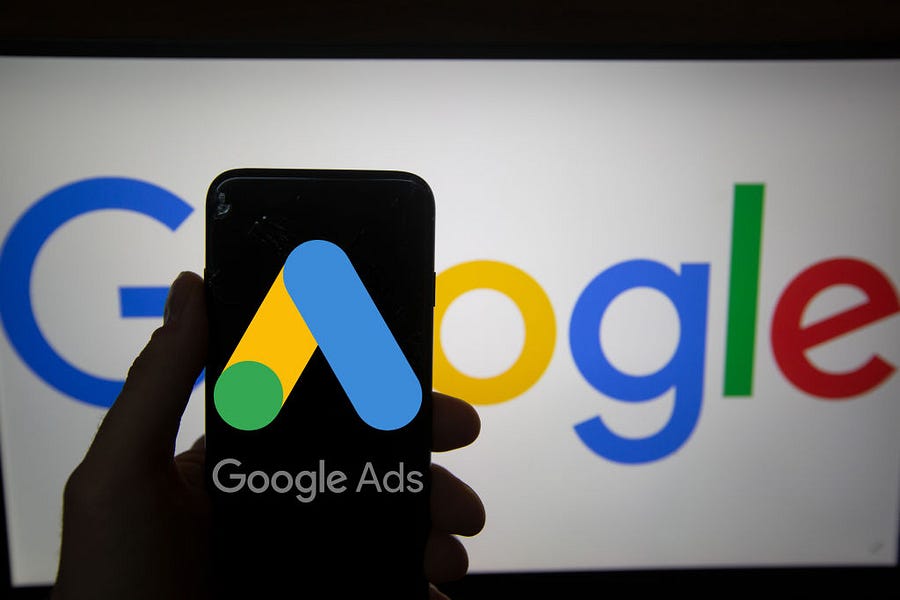State governments looking to boost revenues have started to consider “digital ad” taxes, with politicians saying it’s time for big tech companies to pay their fair share. The idea is that, if Google and Facebook are making money off advertisements served to internet users in Maryland or Nebraska or New York, those states should be able to reap some tax revenues.
But an attempt to implement such a law in Maryland demonstrates practical and logistical problems, and experts say that what may sound like a good idea on paper will end up hurting small businesses—and therefore residents of the states—in practice.
Last month, Maryland’s legislature overrode a veto from Gov. Larry Hogan to become the first state to pass such a law. The state still faces an arduous journey to implementation, as several industry and tech groups have already signed on to a lawsuit to overturn it.
The tax is designed to target companies like Google, Facebook, and others and is based on the amount of revenue a company makes off of digital ads inside the state of Maryland. The percentage of the tax a company will pay is based on a company’s global revenue. If a company makes from $100 million to $1 billion a year, that company will pay a 2.5 percent tax. And companies that make more than $15 billion a year will pay a 10 percent tax.
Maryland Senate President Bill Ferguson, who led the charge to enact this tax, posted on Facebook the day Gov. Hogan’s veto was overturned: “Today, Maryland will become the first state in the country to make sure big tech pays their fair share while making billions of dollars a year using our personal data to sell digital ads,” he said.
Upon reviewing the law, Maryland Attorney General Brian Frosh identified areas that pose potential constitutional conundrums and may tank the bill in court, one of which was whether or not this tax abides by the law set out in the Internet Tax Freedom Act of 1998 (ITFA). ITFA prohibits discriminatory taxes on electronic commerce and, depending on what part of the advertising service is actually taxed, will be a determining factor in the bill’s constitutionality.
The constitutionality of the bill has been questioned from its inception. In his letter, Frosh didn’t weigh in firmly on one side or the other. “Overall, while there is some risk a reviewing court would find some provisions of House Bill 732 to be unconstitutional, those provisions are not clearly unconstitutional,” he said, leaving the fate of the bill to be decided in the courts.
Stephen Kranz, a partner at McDermott, Will & Emery LLP, the law firm representing the companies suing the state of Maryland to invalidate this tax, explained to The Dispatch: If a local crab shack in Maryland buys $100 worth of advertising from a big tech company, that $100 will be taxed at a varying rate under this new law depending on the global revenue of that company. Instead of eating that cost, the big tech company, in practice, will pass on that surcharge to the crab shack. As such, although the companies selling the ads are technically on the hook for the tax, Maryland businesses may very well bear the brunt of it—companies could just raise their prices to display an ad.
“Google would have the legal obligation to remit tax, but the burden of that tax would likely be borne by those actually advertising into Maryland. Which would be substantially Maryland businesses,” Jared Walczak, vice president of state projects at the Tax Foundation, tells The Dispatch.
The Maryland legislature passed emergency legislation aiming to restrict companies, like Google, Facebook or Amazon, from raising prices to cover the expense of the tax. But Doug Mayer, spokesman for Marylanders for Tax Fairness, points out enforcing that goal is extremely hard to do. “It’s very naive to the fact that there’s not a law that the Maryland legislature could pass to prevent an out of state company from raising their prices,” he said, adding that the emergency legislation is a “smokescreen.”
The idea for the tax originated in the European Union years ago. This digital service tax (DST) is commonly referred to as the “GAFA tax”—a reference to Google, Apple, Facebook, and Amazon. France became the first EU member state to implement such a tax at the beginning of 2019, but paused the tax in 2020 out of fear of an international trade war.
Industry groups hope they can stop it in its tracks here in the United States, before other states follow suit.
The U.S. Chamber of Commerce is among the groups that signed on to the lawsuit hoping to stave off the tax from taking effect. “This law represents tax policy at its worst — it risks double taxation and brings uncertainty to an already suffering economy,” Vice President of Tax Policy Caroline Harris said. Her statement added that the U.S. Chamber sees the lawsuit as an opportunity to set a precedent across all states, not just Maryland.
And John Berroya, senior vice president and general counsel of the Internet Association—the lobbying group often associated with big tech—said the law is “a case of legislative overreach, punishing an industry that supports over 100,000 jobs in Maryland and contributes tens of billions of dollars to its economy each year.”







Please note that we at The Dispatch hold ourselves, our work, and our commenters to a higher standard than other places on the internet. We welcome comments that foster genuine debate or discussion—including comments critical of us or our work—but responses that include ad hominem attacks on fellow Dispatch members or are intended to stoke fear and anger may be moderated.
With your membership, you only have the ability to comment on The Morning Dispatch articles. Consider upgrading to join the conversation everywhere.